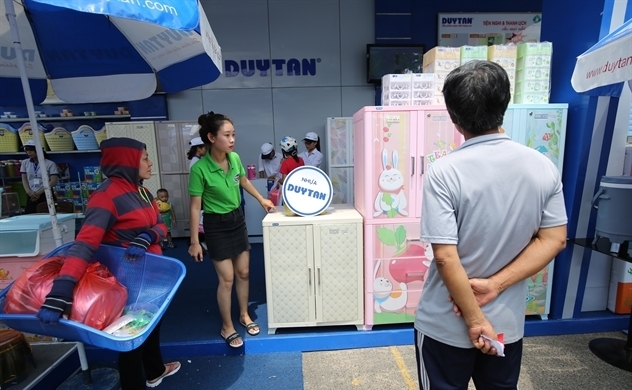Unable to wait for the pandemic to end and seeing revenue drop to zero, businesses have been trying every method to earn money in the Covid-19 crisis.
Prior to Tet, the farm of Phan Tan in Dong Thap province, could bring revenue of VND4-5 billion a month from the sale of poultry eggs. But since February, Tan has incurred a loss of VND2 billion a month because of Covid-19.

“I think I can ‘hold out’ for two more months. After that, I will have to stop farming if the epidemic continues,” Tan said.
Tan’s poultry farm is one of the 10 biggest in the Mekong Delta, providing 50,000 fowls and ducks a month to the market.
Of this, 70 percent is exported to China. But the market has stopped consuming Tan’s products since the Covid-19 outbreak. Tan still has to collect products from local farmers under contracts he signed with them before.
“Many farms have stopped operation because of big losses. Some of them reported a loss of VND4-5 billion,” he said. “Fortunately, I decided to scale down the fowl herd in February. This helps me exist."
Duy Tan Plastics, one of the biggest household-use plastics manufacturers, has also suffered heavily from Covid-19.
When the epidemic broke out in China, Duy Tan’s managers were not worried about the company’s prospects because it imports materials from South Korea and other markets. However, things became worse when the epidemic broke out in South Korea.
Meanwhile, domestic demand has decreased as people are buying mostly essential goods. Duy Tan began facing difficulties in 2019, when domestic consumers tried to restrict the use of plastic products to protect the environment. The situation has become worse because of Covid-29.
Most enterprises have been hit hard by the epidemic. A survey by the Committee for Private Economic Sector Development (Committee IV) of 1,200 enterprises in different business fields found that 74 percent of enterprises may go bankrupt if the epidemic lasts six months.
Dang Hong Anh, chair of the Vietnam Young Entrepreneur Association, said businesses need to escape the ‘holding’ mode, or they won’t be able to exist.
Anh said if businesses have minus profits, they will have to use reserve funds to maintain cash flow.
They need to survive the crisis, because if they lose capital and lose liquidity, they will lose everything. They also need to prepare resources to recover in the post-crisis period. If they don’t have resources, they will miss opportunities.
Nguyen Van Than, chair of the Vietnam Association of Small and Medium Enterprises, said the association and its members are cooperating with agencies to maintain production, seek new markets and material supply sources, and minimize dependence on one market.